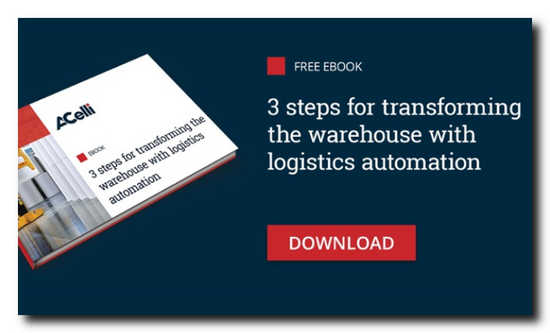Ian Melin-Jones
Mitsubishi HiTec Paper with two innovations at Labelexpo Europe 2019
With two innovations in store, Mitsubishi HiTec Paper is presenting a wide range of coated specialty papers for the label and packaging market at Labelexpo Europe 2019. The new products: jetscript METAL VPG 1018, a metallic- silver gloss inkjet paper for the water-based inkjet printing of self-adhesive labels, as well as barricote BAG WGOM, a fully recyclable barrier paper for flexible food packaging with multi-barrier against water vapour, grease and oil, oxygen and aroma as well as mineral oil migration.
As a paper product, the new jetscript METAL VPG 1018 (110 g) is purely fibre-based with a silver metallic glossy finish and a transparent, microporous inkjet coating for excellent printing performance. The inkjet paper impresses with its high print density, fast drying, compatibility with latex inks and optimum performance in the self-adhesive production process. "This makes it particularly suitable for eye-catching and high-quality labels in the beverage, cosmetics or food sector. But also for other applications such as wrapping paper, advertising panels and displays, "says Nic Holmer, Director Sales of the Bielefeld specialty paper manufacturer.
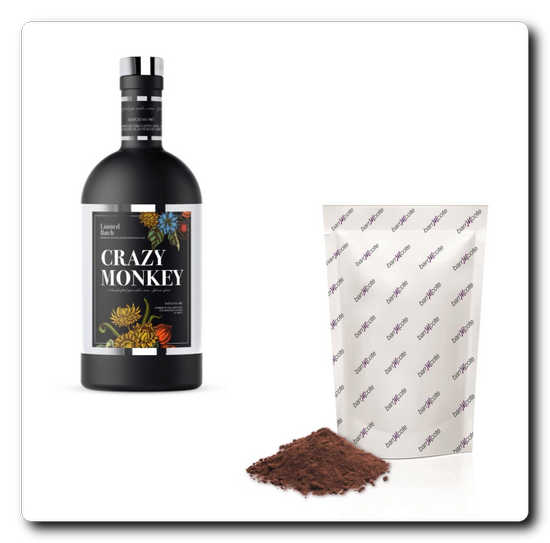 Silver metallic glossy inkjet paper for eye-catching labels: jetscript METAL VPG 1018 (left). Fully recyclable paper with multi-barrier for flexible food packaging: barricote BAG WGOM (right).
Silver metallic glossy inkjet paper for eye-catching labels: jetscript METAL VPG 1018 (left). Fully recyclable paper with multi-barrier for flexible food packaging: barricote BAG WGOM (right).
With the new barricote BAG WGOM (89 g), Mitsubishi launches a particularly sustainable barrier paper for flexible food packaging, which impresses with a universal multi-barrier. "Because it protects food and consumers not only from water vapour, fat / oil and oxygen / aroma, but also from mineral oil migration (MOSH / MOAH), and thus
offers particularly wide barrier protection," adds Nic Holmer. In addition, BAG WGOM can be heat-sealed very effectively and is approved for direct food contact. The virgin fibre paper product is 100% free of plastic films, aluminium and fluorocarbons, fully recyclable, and FSC® or PEFC™ certified.
In addition, Mitsubishi will be showcasing a comprehensive range of coated specialty papers for the label market at
Labelexpo Europe:
> Thermoscript thermal papers, amongst others for linerless applications, with extra high heat resistance or with back protection
> Jetscript inkjet papers, amongst others a light 70 g version, for ticket and tag applications or with an embossed surface
> Supercote cast-coated label papers, amongst others for wet glue labels, composite cans and shoulder boxes
Samples and further information will be available at the Mitsubishi stand of Labelexpo Europe 2019 in Brussels (Hall 6, Stand 6A09), but also at the Fachpack 2019 in Nuremberg (Hall 7A, Stand 7A641) - or directly from the sales department at This email address is being protected from spambots. You need JavaScript enabled to view it.
Mitsubishi HiTec Paper Europe GmbH is a German subsidiary of Mitsubishi Paper Mills Ltd., Japan, one of the world's leading manufacturers of specialty paper. The roughly 750 employees at Mitsubishi HiTec Paper Europe produce high-quality direct thermal, inkjet, carbonless, label and barrier papers at two tradition-rich locations in Bielefeld and Flensburg.
Each factory stands out for own base paper production, state-of-the-art production machinery and innovative coating technologies. Through its dense global sales network, Mitsubishi HiTec Paper Europe supplies a full range of specialty papers for many applications and printing technologies – and is a highly capable partner whenever customized coated paper solutions are required
ANDRITZ successfully starts up tissue production line with shoe press and steel Yankee at Africaine Paper Mills, Algeria
International technology Group ANDRITZ has successfully started up the PrimeLineCOMPACT tissue production line, including stock preparation, delivered to Africaine Paper Mills (APM) in Algeria.
The ANDRITZ energy-efficient tissue machine has a design speed of 2,100 m/min and a working width of 2.85 m and produces tissue for high-quality facial wipes as well as toilet and towel paper grades. The machine is equipped with the latest ANDRITZ shoe press technology PrimePress XT Evo. With its energy-efficient design, improved dewatering, and reduced need for thermal drying, the shoe press minimizes energy consumption. Furthermore, the 16 ft. PrimeDry Steel Yankee enables a high drying capacity.
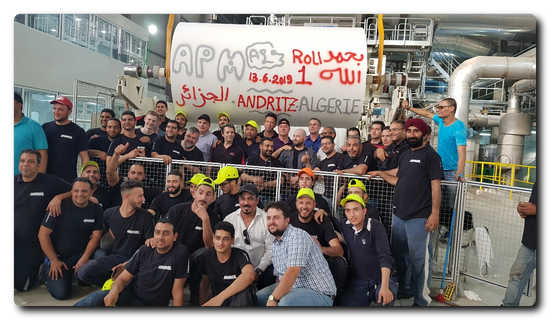 Successful start-up of the ANDRITZ PrimeLineCOMPACT tissue production line at Africaine Paper Mills in Algeria. © ANDRITZ
Successful start-up of the ANDRITZ PrimeLineCOMPACT tissue production line at Africaine Paper Mills in Algeria. © ANDRITZ
The stock preparation system also consists of equipment with the highest energy efficiency, such as a FibreSolve FSV pulper with innovative rotor, well-proven TwinFlo double-disc refiners as well as ModuScreen HBE headbox screens for the approach flow system. Fiber recovery and broke handling are also part of the scope of supply.
“Start-up of the mill was a great success, and the collaboration with ANDRITZ was very good. It is the first tissue machine for APM, and we are proud to announce the first paper on reel. For us, good paper quality combined with energy-efficiency is of utmost importance. The combination of a steel Yankee and a shoe press enables efficient drying with substantial energy savings.” Ziad Haffar, General Manager, Africaine Paper Mills (APM).
Africaine Paper Mills (APM) is an innovative paper manufacturing company founded by people with longtime and profound experience in the paper making industry. Its expansion plans include paper mills in several countries belonging to the MENA (Middle East & North Africa) region.
The successful start-up once again confirms ANDRITZ’s strong position as one of the global market leaders in the tissue industry and as supplier for complete tissue production lines, key components, and services.
ANDRITZ PULP & PAPER
ANDRITZ Pulp & Paper is a leading global supplier of complete plants, systems, equipment, and comprehensive services for the production and processing of all types of pulp, paper, board, and tissue. The technologies cover processing of logs, annual fibers, and waste paper; production of chemical pulp, mechanical pulp, and recycled fibers; recovery and reuse of chemicals; preparation of paper machine furnish; production of paper, board, and tissue; sizing, calendering and coating of paper; as well as treatment of reject materials and sludge. The service offering includes system and machine modernization, rebuilds, spare and wear parts, on-site and workshop services, optimization of process performance, maintenance and automation solutions, as well as machine relocation and second-hand equipment. Biomass, steam and recovery boilers for power production, gasification and flue gas cleaning plants, systems and plants for the production of nonwovens, dissolving pulp, and panelboard (MDF), as well as recycling and shredding solutions for various waste materials also form a part of this business area.
Metsä Board to present its premium white kraftliners at FEFCO’s Technical Seminar
Metsä Board, the leading European producer of premium fresh fibre paperboards and part of Metsä Group, will be presenting its high-quality white kraftliners at FEFCO Technical Seminar 2019. Metsä Board’s packaging design experts will also be present to discuss the latest corrugated packaging design solutions with the visitors.
- 9–11 October at Palexpo Geneva – Hall 1, Stand 86–87
 The newly enhanced MetsäBoard Classic WKL will be showcased in the event. Its improved brightness highlights the contrast between printed and unprinted areas. Additionally, the enhanced grade also allows fast ink drying times, even without dryers, making it suitable for water-based digital printing. Quick ink drying also means energy savings and therefore reduced carbon emissions in printing.
The newly enhanced MetsäBoard Classic WKL will be showcased in the event. Its improved brightness highlights the contrast between printed and unprinted areas. Additionally, the enhanced grade also allows fast ink drying times, even without dryers, making it suitable for water-based digital printing. Quick ink drying also means energy savings and therefore reduced carbon emissions in printing.
As part of the commitment to develop customer focused services Metsä Board has recently introduced a new WKL Common Stock service in Lübeck. It offers just-in-time deliveries to corrugated board manufacturers in continental Europe. This service will improve the availability of white kraftliners and help corrugated converters to be more responsive and competitive.
“Consumers expect unified brand experiences across all touchpoints – also in e-commerce. Our white kraftliners offer sustainable and strong solutions for branded e-commerce packaging,” says Veijo Korkalainen, VP Sales WKL from Metsä Board. “Also with clever packaging design it is possible to work towards more sustainable solutions. An excellent example of an innovative corrugated packaging design is Stretching Inner Part that can replace bubble wrap in e-commerce boxes.”
Metsä Board’s Panu Räsänen, Product Manager WKL, will give a presentation on 9 October at 14.50 on the importance of ‘Paper parameters and their impact on the corrugated processes’.
Metsä Board is the main sponsor of FEFCO’s Technical Seminar 2019.
ANDRITZ acquires KEMPULP
International technology Group ANDRITZ has acquired the Swedish company KEMPULP, a specialist provider of process technologies for the chemical pulping industry.
The company designs and markets technologies used in chemical pulping, including pulp washing, oxygen delignification and bleaching technologies.
The acquisition includes all of KEMPULP’s intellectual property rights, technical expertise, tools, systems and inventory. The company supplies process solutions, equipment, upgrades, parts and services that complement ANDRITZ’s existing offering for pulp producers.
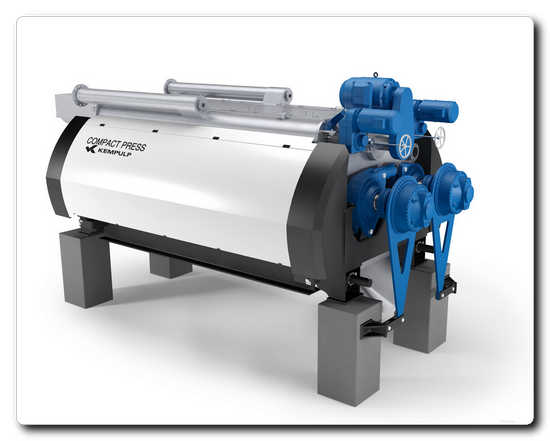 COMPACT PRESS from KEMPULP © ANDRITZ
COMPACT PRESS from KEMPULP © ANDRITZ
KEMPULP has a number of well-known products and technologies in its portfolio, including the COMPACT PRESS®, DualOx®, DualOmix®, DualSmix®, DUFLO®pump, DualD™, DualDmix®, DualZmix®, DUFLO®pump, and DynaDisc™.
Joachim Schönbeck, Executive Board member of ANDRITZ AG and responsible for Pulp & Paper Capital Systems says: “KEMPULP’s products and process technologies will continue to be a strong player on the market, providing solutions that complement the ANDRITZ technologies and equipment for specific chemical pulping processes – both for new plants and upgrades to existing installations. As a result, KEMPULP’s process technologies and products will enable ANDRITZ to offer optimized solutions to the benefit of its customers.”
The KEMPULP organization will be fully integrated into the ANDRITZ Pulp & Paper organization. KEMPULP is located in Karlstad, Sweden and has approximately 30 employees.
ANDRITZ PULP & PAPER
ANDRITZ Pulp & Paper is a leading global supplier of complete plants, systems, equipment, and comprehensive services for the production and processing of all types of pulp, paper, board, and tissue. The technologies cover processing of logs, annual fibers, and waste paper; production of chemical pulp, mechanical pulp, and recycled fibers; recovery and reuse of chemicals; preparation of paper machine furnish; production of paper, board, and tissue; sizing, calendering and coating of paper; as well as treatment of reject materials and sludge. The service offering includes system and machine modernization, rebuilds, spare and wear parts, on-site and workshop services, optimization of process performance, maintenance and automation solutions, as well as machine relocation and second-hand equipment. Biomass, steam and recovery boilers for power production, gasification and flue gas cleaning plants, systems and plants for the production of nonwovens and absorbent hygiene products, dissolving pulp, and panelboard (MDF), as well as recycling and shredding solutions for various waste materials also form a part of this business area.
Mondi fills recycled paper gap with extended NAUTILUS® range
Mondi fills recycled paper gap with extended NAUTILUS® range
Leading global packaging and paper group Mondi has taken action to address the shortage of uncoated recycled fine paper in Europe. Mondi’s uncoated recycled fine paper brand NAUTILUS® has been extended to include a full portfolio for professional print and office applications. Leading distributors such as Antalis, Europapier and Igepa have partnered with Mondi to make the paper available to customers across Europe and beyond. To meet market demand, Mondi’s Neusiedler mill has a good supply of fast moving recycled paper grades and formats in stock to ensure quick delivery and long-term availability of NAUTILUS®.
Full portfolio with certified sustainability
All NAUTILUS® papers are part of Mondi’s Green Range, are FSC™ certified and carry the EU Ecolabel. As a 100% recycled paper, NAUTILUS® Classic additionally features a Blue Angel certification. The range is available in ten substances from 70 to 350 g/m2 and sheet formats for offset printing, as well as in reels, SRA3, A3 and A4.
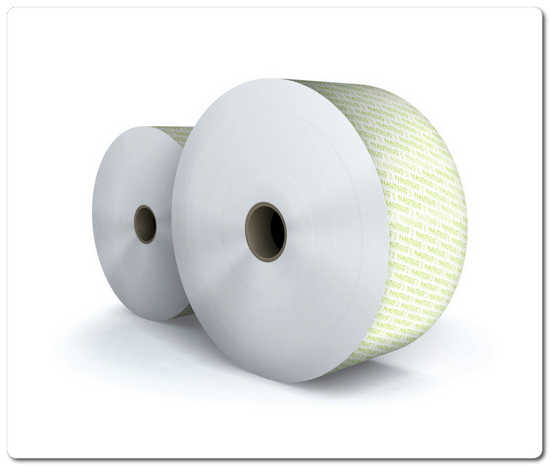
Johannes Klumpp, Marketing & Sales Director for Mondi Uncoated Fine Paper says,“With the new and improved NAUTILUS® mill brand, we prove our commitment to the recycled paper market. When it comes to consistent quality, service, delivery times and long-term availability, recycled papers now match the standard of premium papers made from virgin fibre”.
Strong distribution network
Along with extending the brand range, Mondi also activated their network of distribution partners. Agreements with key international players such as Antalis, Europapier and Igepa are in place, which means that the full NAUTILUS® range is readily available from stock for professional printers and other customers across Europe now.
“We are delighted with this new distribution agreement. We believe that Mondi has the right product and service to become the market leader in the recycled uncoated paper segment. They also have a good track record of establishing strong brands in the market”, says Xavier Jouvet, Group Marketing & Purchasing Director for Antalis.
Helmut Limbeck, CEO of Europapier Group, adds, “We have a longstanding business partnership with Mondi, which was an excellent foundation for this new business opportunity in the recycled paper market. Mondi shows the commitment we need from an industry partner and brand owner, and NAUTILUS® has the potential to become the new standard with the support of our distribution network.”
“We were impressed by the speed and dedication Mondi displayed when it came to extending the NAUTILUS® brand to a full recycled paper range including professional print. Combined with Igepa group’s excellent customer service, most reliable logistics and delivery, we see a lot of potential in our cooperation”, says Elmar Schätzlein, Managing Director for Igepa group.
NAUTILUS® portfolio overview
NAUTILUS® SuperWhite combines the benefits of a 100% recycled paper with a whiteness level expected from fresh fibre office papers (150 CIE). Along with its strong haptic appeal, NAUTILUS® SuperWhite features unusually clean surface qualities leading to a unique visual appeal. Folio format and reels are available from 80 to 350 g/m2, office formats in 80 g/m2.
NAUTILUS® Classic is a 100% recycled paper, combining a bulky touch and feel with high opacity and a natural recycled look (112 CIE). Available in folio formats and reels from 70 to 300 g/m2, as well as A4 and A3 in 80 g/m2.
NAUTILUS® for high-speed inkjet: both NAUTILUS® SuperWhite and Classic are also available in a surface-treated quality optimised for high-speed inkjet printing. These are suitable for dye as well as pigment inks.
NAUTILUS® ReFresh is a three-layered 30% recycled paper. A fully recycled layer in the middle is covered by outer layers made from FSC™ certified totally chlorine free fresh fibres. The so-called TRIOTEC® process enables a whiteness level of 161 CIE for this 80 g/m2 office paper.
About Mondi Uncoated Fine Paper
Mondi Uncoated Fine Paper is a business unit of Mondi Group. In six operating sites in Austria, Slovakia, Russia, and South Africa, Mondi Uncoated Fine Paper produces pulp and environmentally responsible office and professional printing papers tailored to the latest professional digital and offset print technologies.
The company complies with the strictest international certification standards to support sustainable production processes through the responsible management of forest, water and air resources.
All Mondi uncoated fine papers belong to the Green Range of papers that are FSC™ or PEFC™ certified, 100% recycled or bleached entirely without chlorine.
Its renowned brands such as Color Copy, PERGRAPHICA®, NAUTILUS®, NEUJET®, IQ, MAESTRO®, BIO TOP 3®, DNS®, Snegurochka or ROTATRIM are used in office environments on laser or inkjet printers and by professional printers on digital or offset presses to create brochures, transactional material, folders, invitations, business cards, letterheads or other high-impact communication.
Converters appreciate the excellent printability and smooth handling of Mondi’s professional printing papers.
About Mondi
Mondi is a global leader in packaging and paper, delighting its customers and consumers with innovative and sustainable packaging and paper solutions.
Mondi is fully integrated across the packaging and paper value chain -from managing forests and producing pulp, paper and plastic films, to developing and manufacturing effective industrial and consumer packaging solutions. Sustainability is embedded in everything Mondi does.
In 2018, Mondi had revenues of €7.48billion and underlying EBITDA of €1.76nbillion.Mondi has a dual listed company structure, with a primary listing on the JSE Limited for Mondi Limited under the ticker MND, and a premium listing on the London Stock Exchange for Mondi plc, under the ticker MNDI.
Mondi is a FTSE 100 constituent, and has been included in the FTSE4Good Index Series since 2008 and the FTSE/JSE Responsible Investment Index Series since 2007.
Lucart presents its 2018 Sustainability Report with a focus on Circular Economy, new investments, dialogue with the stakeholders, and partnerships for sustainable development
Lucart’s 14th Sustainability Report, drawn up in accordance with the international guidelines of the Global Reporting Initiative (GRI Standard), highlights, among other things, an increase in turnover (+12%) and key investments such as the acquisition of three production plants in Spain, the construction of a new plant in Hungary, the start-up of a new Continuous Machine for the production of tissue paper (PM12) and the construction of a new, fully automated logistics centre to improve customer service.
- · In 2018, the company's turnover increased by 12% despite the rising price of cellulose
- · Major investments include the acquisition of three production plants in Spain and the construction of a new plant in Hungary
- · 53% of the materials used by Lucart for the production of paper originate from recycled paper
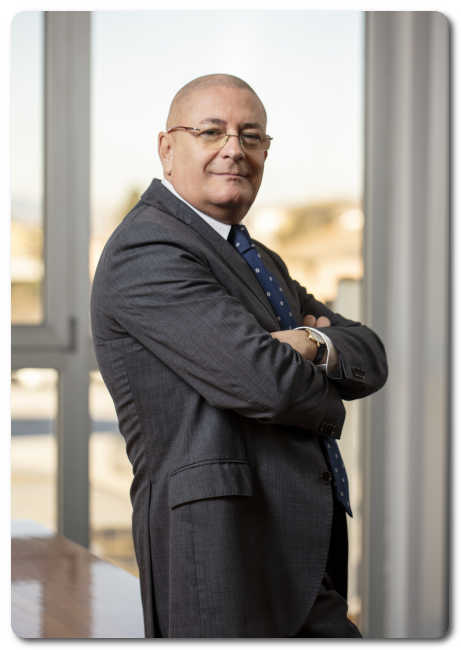 As always, the Report places considerable emphasis on the analysis of environmental data, which this year have been supplemented with more detailed information on recycled paper.
As always, the Report places considerable emphasis on the analysis of environmental data, which this year have been supplemented with more detailed information on recycled paper.
According to Lucart’s estimates, following an EPD[1] (Environmental Product Declaration) analysis carried out on two types of toilet paper produced by this Italian multinational company, different environmental benefits can be measured for each tonne of recycled toilet paper produced compared to paper made from “virgin” cellulose, including:
- · 80% reduction in the consumption of renewable resources, with savings of 4,060.90 kg of wood;
- · 38% reduction in the consumption of water resources, i.e. 50.63 m3 of water;
- · savings of 20% of the fossil CO2 emitted, one of the gases that are most to blame for climate change.
Clearly, therefore, it is important to manufacture products such as toilet paper from recycled materials, as they cannot be further recycled. However, this can only be achieved by implementing a regulatory framework that promotes the production and sale of recycled products, for example by approving End of Waste decrees and adopting tax incentives for recycled products.
According to data provided by Assocarta, approximately 1.5 million tonnes of tissue paper for hygiene and sanitary use are produced in Italy each year, of which only 7% is produced from recycled materials. Lucart goes completely against the trend in the industry as more than 53% of the paper it uses is recycled, and it also generates value locally since as much as 95% of the recycled paper it uses comes from Europe and, specifically, from Italy, France and Spain, the countries where Lucart has plants capable of producing recycled tissue paper.
In 2018, in order to speed up its transition to a circular economy, Lucart also joined the CE100 network of the Ellen MacArthur Foundation, the world’s largest network for companies seeking to develop new opportunities in circular economy.
The 2018 report also includes the Sustainable Development Goals (SDGs) of the United Nations’ General Assembly, which are valid for 2016 - 2030. These goals are the most concrete way to build a more inclusive world that respects the environment.
World’s most modern board machine successfully commissioned at BillerudKorsnäs in Gruvön
On June 28, 2019, the BM 7, the most modern, most efficient and largest board machine in the world, was successfully commissioned at the BillerudKorsnäs production facility in Gruvön, Sweden. The Voith XcelLine board machine has been equipped with a pioneering technological setup that sets new performance benchmarks for production lines for four different board grades. At a design speed of 1,200 m/min and web width of 8,800 mm, the capacity of the BM 7 is 550,000 metric tons per year. Start-up took just seven days from stock on wire to paper on reel.
- New performance benchmarks in board production
- Cutting-edge technologies and smart digital solutions
- Features other innovations like highly specialized coating units and use of carbon fiber components
“Not only is the start-up of the new BM 7 in Gruvön running to schedule; the collaboration with the Voith team has also been first-rate. As a result we were able to meet all major milestones and have been producing high-quality liners for our customers on the BM 7 since the end of June. We will continue to focus on the successful start-up of the BM 7, safety, production stability, efficiency improvements and innovation,” says Maria Engnes, Program Director NEXT Generation of BillerudKorsnäs.
“With the board machine in Gruvön, currently the most modern in the world, Voith Paper has once again been able to reinforce its position as a technology leader and innovation driver,” adds Patrick Romes, Senior Project Manager, Voith Paper.
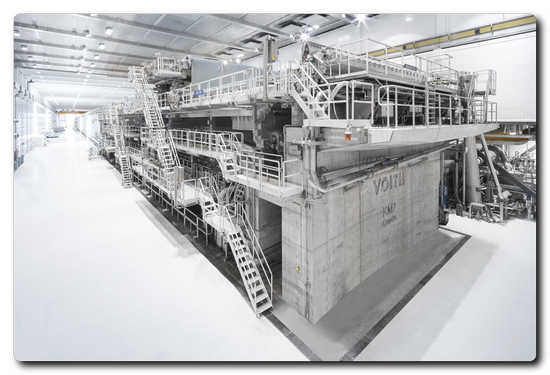 BillerudKorsnäs, Voith XcellLine KM 7 Gruvön, Sweden
BillerudKorsnäs, Voith XcellLine KM 7 Gruvön, Sweden
State-of-the-art: outstanding technological features
Some of the standout features of the former section include a three-ply wire section with a DuoFormer D II hybrid former, two state-of-the-art DuoShake shakers and a fiber orientation control system. The scope of supply also includes various MasterJet Pro F systems with additional IntraDamp modules for the headbox. In the press section, a Tandem NipcoFlex shoe press with SolarPress roll covers ensures optimum dewatering.
In the dryer section, EvoDry steel cylinders are being used in a board machine for the first time. The special cylinders allow highly efficient and safe paper drying thanks to higher heat transfer and greater working width. Another first at a European paper mill is the high performance winder VariFlex XL.
In the finishing section, the BM 7 is also the first board machine worldwide to be fitted with Curl Control. For maximum flexibility and optimum product quality, the machine also has four different coating units: two SpeedSizer systems, one JetFlow F and one DynaCoat AT. Both the SpeedSizer units and the DynaCoat AT have carbon fiber supporting structures to ensure stable CD profiles with consistent coating performance.
Papermaking Next Level: integrative digital solutions
The Papermaking 4.0 solutions OnEfficiency and OnCare, which allow all process data to be monitored and controlled online in a user-friendly format, are also major components of the BM 7. Among other things, OnEfficiency Forming enables de-watering, retention and flocculation to be stabilized and coordinated at the same time. The OnCare package including integrated asset management ensures maximum machine availability thanks to highly efficient preventive maintenance of the entire paper machine. This in turn also helps reduce project costs.
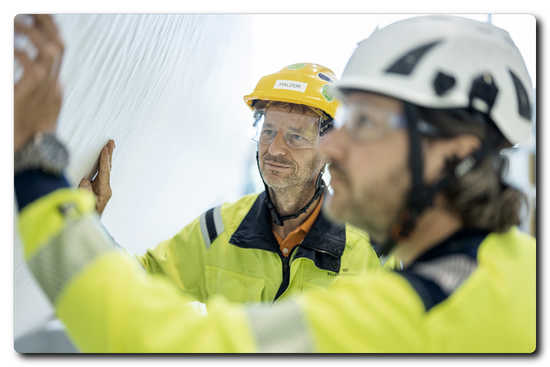 from left to right, Magnus Johansson, BillerudKorsnäs, project manager KM 7, Christian Merz, Chief Commissioning Engineer Voith Paper
from left to right, Magnus Johansson, BillerudKorsnäs, project manager KM 7, Christian Merz, Chief Commissioning Engineer Voith Paper
Initial clothing of BM 7 by Voith
Voith was engaged to supply the initial clothing for the BM 7. In addition, as main supplier for the BillerudKorsnäs mill, Voith will over the next three years supply the CleanWeave dryer fabrics, Kinetic and Infinity press felts and I-Series forming fabrics. This will ensure consistently high paper quality and is yet further evidence of the customer’s trust in Voith and confirmation of Voith’s success as a full-line supplier.
About the Voith Group
The Voith Group is a global technology company. With its broad portfolio of systems, products, services and digital applications, Voith sets standards in the markets of energy, oil & gas, paper, raw materials and transport & automotive. Founded in 1867, the company today has more than 19,000 employees, sales of € 4.2 billion and locations in over 60 countries worldwide and is thus one of the large family-owned companies in Europe.
The Group Division Voith Paper is part of the Voith Group. As the full-line supplier to the paper industry, it provides the largest range of technologies, services, components and products on the market and offers paper manufacturers solutions from one single source. The company’s continuous stream of innovations takes papermaking to the next level and facilitates resource-conserving production. With its Servolution concept, Voith offers its customers tailored service solutions for all sections of the production process. Voith Papermaking 4.0 ensures that equipment is optimally connected, while the secure use of generated data enables paper manufacturers to improve plant availability and efficiency.
Less human intervention in the warehouse with robot AGV
The robot AGV has knocked on the door of the warehouse, and not as a passing guest, but as a new and welcome tenant. Automated Guided Vehicles - self-driving vehicles that perform handling tasks - represent a groundbreaking innovation for the world of intralogistics.
The innovation forms part of the wider one of Industry 4.0, which consists of connectivity and the Internet of Things, temperature, presence and movement sensors, RFID readers, and software that collects and analyses data to improve processes and perform predictive maintenance. These technologies are transforming production, but also other aspects of the supply chain.
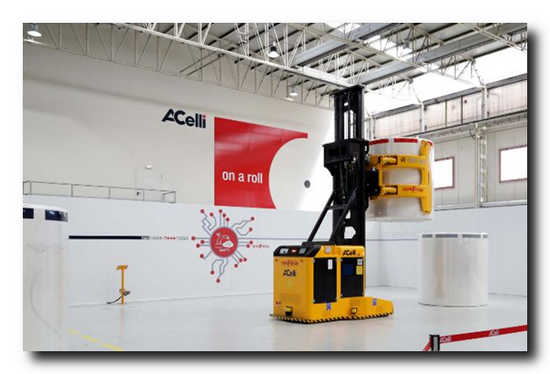
There are various types of AGVs suitable for handling different quantities and types of goods, all of which share some abilities that translate into advantages.
Autonomy guaranteed by software and sensors
The ability to move independently (thanks to a range of technologies: electrical, optical, magnetic, GPS, etc.) makes the presence of a driver superfluous. Vehicles equipped with software can be programmed to perform precise operations, while cameras and sensors allow machines to perceive the surrounding environment.
The strength of machines
In intralogistics, as in many other fields (such as construction), the strength of machines far exceeds that of humans. The weight-bearing capacity of robot AGVs can vary greatly, but is in all cases superior to that of a team of people and often also to that of the classic forklift truck. The most powerful models can handle loads weighing several tons.
Constant energy
Lithium batteries, which can be charged quickly, increase the productivity of AGVs and reduce downtime. It can be said, then, that the level of performance of a machine does not improve or suffer according to physical condition, tiredness, hunger or commitment, but remains constant.
Safety for workers and goods
Intrinsically safe design, bumpers, brakes, and sensors that detect the presence of obstacles all help to reduce the risk of accidents (collisions with other vehicles or people, falling of goods, etc.).
Precision without distraction
Mechanical arms designed according to the goods to be handled (bales of raw material, pallets, paper rolls, etc.) and sensors allow for precise and repeatable movements, not subject to variability or human error.
The speed of a tireless robot
It is certainly easier for a vehicle to travel long distances, from one warehouse to another or between very large warehouse departments, or to shuttle between the picking area and the logistics delivery area. The performance of a robot AGV does not depend on subjective factors, on tiredness, or on the bulk of the shifted goods.
The flexibility of a fleet
If a company wishes to expand its production department or warehouse, it can increase the fleet of Automated Guided Vehicles in a gradual and flexible manner without risk of interference or the need to train new personnel.
Taken individually and of course as a whole, these features demonstrate why robot AGVs are a powerful tool in terms of productivity, efficiency and savings. A single self-driving vehicle can do the work of one or more people in less time. Programming makes it possible to precisely define routes and actions for the robot, but the advantages of AGVs are maximised in the case of use for repetitive processes in the warehouse and/or on a large scale.
The future of human-robot collaboration
Will we be saying goodbye to workers in the warehouse, then? Not exactly. Robots can improve and transform intralogistics processes, as well as cost and productivity models. But they don't have to be seen as earth-shattering. Their technology is scalable: you can start with one or two, and then increase the fleet when you best see fit. Moreover, since AGVs are essentially "workers", it is them that have to adapt to existing workflows, and not the other way around. Rather than disappear, warehouse staff will be able to devote themselves to activities of greater added value: supervision, management, planning, maintenance and shipment control (thereby increasing the precision of operations and the correctness of deliveries).
Relieved of heavy work, the staff can dedicate more time and energy to tasks of responsibility. It is therefore true that there will be "less human intervention", but not from a purely numerical point of view: the more the warehouse is automated and managed by software, the more its processes interact without the need for a person to solve problems, perform maintenance, move objects or assign tasks to colleagues. Human intervention is reduced because the problems are reduced.
Industry 4.0 therefore allows robots and people to coexist by sharing tasks and responsibilities. But there is no doubt, in any case, that a 4.0 warehouse requires fewer new staff, since if the load increases it is possible to assign more hours of work to an AGV or add to the fleet. There is a faster return on investment in machines due to cutting of personnel costs, not to mention better productivity and efficiency. In short, AGVs must not be seen as something of which to be afraid: they can be used in warehouses without causing confusion or threatening the existing dynamics, and indeed with the promise of numerous benefits. In this article we focused on one aspect - reduced human intervention - but we will also talk about the other advantages in our eBook "Forklifts VS AGV systems: what is best for the warehouse?"
Why companies should use warehouse automation for stock
Warehouse automation is the answer to the various problems associated with supply chains that need to be increasingly efficient and capable of handling many complex factors. E-commerce has made everything faster: from development and production to stock rotation and delivery. We need to be flexible and open to change, but also precise, because the customer has higher expectations than ever and is intolerant to error.
FREE EBOOK! >> 3 steps for transforming the warehouse with logistics automation
Then there are the costs of manual labour and maintaining the plants, which increase when the warehouse has to be expanded to take more stock. We now also commonly hear about connected objects, Big Data and analytics: these too are significant as they are the means for the transformation of many sectors (the agriculture and manufacturing industry, for example) and the flows of physical products are inextricably linked with data flows.
Logistics is not an island: the "4.0" transformation has also revolutionised this area, bringing automated tools for handling materials, robotics, sensors and data management and analysis software to the warehouses. Let us see, then, the main benefits of automation for warehouses.
10 advantages of warehouse automation +1
Some are immediate while others involve a longer return on investment. But the advantages of automation in warehouses all contribute in equal measure to improving the results of a business, allowing for lower costs and opening the way to new possibilities.
1. Speed and efficiency of operations
Automated shelving, shuttles, conveyor belts and automated guided vehicles (AGVs) all help to significantly reduce the time required to perform material handling operations. The loading capacity of the machines is without doubt superior to that of a team of warehouse workers, while sensors, decision points and management software create a "logic" for the workflows.
2. Increased productivity (even 24/7)
Depending on production and logistics requirements, machines can be used for long shifts, even without interruption at night. The dead times are eliminated, and the long operations of storage, handling and preparation of the orders are shortened.
3. Increased flexibility
Automation makes it possible to add resources without modifying the operating model, and with greater ease than human resources that, instead, have be recruited, integrated into the existing team and perhaps also given training. It is therefore easier to cope with seasonal peaks or grow the business, because automated storage is both modular and scalable.
4. Lower overheads
The optimisation of storage capacity, made possible with vertical warehouses, ensures clear savings in terms of rent and the cost of heating and cooling of rooms. The space is multiplied without increasing the surface area.
5. Lower personnel costs (and higher professional skills)
A single machine can do the work of several people on its own, but it still needs to be managed, supervised and maintained. No longer required to perform the most strenuous and repetitive tasks, employees can carry out work of a higher grade.
6. Standardisation and compliance
The definition of standard workflows in accordance with sector policies is another of the most obvious advantages of automation. With regard to safety, shuttles and AGVs in particular relieve the company of many responsibilities and its employees of the need to perform dangerous operations. Furthermore, sensors can be used to monitor the quality of the articles and the conformity of the processes.
7. Increased safety of operations
As mentioned above, entrusting certain tasks to machines and not to people is a fundamental strategy for ensuring safety at the workplace. The instruments in automated warehouses also guarantee "safety by design": they are designed to include bumpers, sensors, audible and luminous alarms that avoid collisions and protect both the warehouse personnel and the goods.
8. Integrity and hygiene of the goods
Devices such as shuttles and AGVs have hooks and gripping systems designed specifically to take palletised or packaged goods to their destination. The robots for handling rolls of paper and tissue, in particular, not only prevent accidental falls and tearing but also ensure total hygiene of the products, as there is no possibility of bacterial contamination during handling.
9. Visibility of goods and data flows
With warehouse automation, the work of collecting and transmitting the data obtained by the sensors is combined with the analytical capabilities of special software programs. The analysis of data (of production, storage, rotations, sales, costs, etc.) is useful for different reasons: it can be used to request automatic transfer from production to the warehouse, to ensure constant temperature in an environment or, again, to identify any issues. The collection of data also permits tracking of the stored material in real time. Moreover, patterns and interdependencies can emerge that cannot be identified with simple "empirical" observation of daily activities.
10. Predictive maintenance
The sensors on automatic vehicles or located at strategic points of the warehouse measure and monitor smooth running of operations. A decline in performance and anomalies alert to potential issues which can be averted with the predictive maintenance software provided.
And in addition to the advantages listed so far is one major plus: technological innovation and the transformation of operating models is a reflection of a mentality both bold and open to change, which certainly plays in favour of the corporate image.
How to make the most of automation
The main advantages of warehouse automation can be summarised as follows:
- for operations: flexibility, efficiency, accuracy, savings, predictive maintenance, compliance with industry standards and rules;
- for employees: improved safety and a better grade of work;
- for customer service: prompt and precise deliveries, and shorter order-delivery cycle;
- for strategies: monitoring of processes, tracking of patterns and data-based business intelligence.
Before considering the benefits for your warehouse, it is important to understand where to start. We are here to help you with our eBook, downloadable free of charge, which explains the 3 steps for transforming the warehouse with logistics automation!
Toscotec to supply an AHEAD-2.0L tissue line on a turnkey basis to Paloma in Slovenia.
The Slovak Hygienic Paper Group appointed Toscotec as turnkey supplier of a new tissue line at Paloma mill in Sladki Vrh, Slovenia.
The delivery is scheduled for March 2020 and the start-up for June 2020.
The turnkey supply includes one AHEAD-2.0L tissue machine, equipped with a second generation Steel Yankee Dryer TT SYD, Toscotec’s shoe press technology TT NextPress and gas-fired hoods TT Hood-Duo. The net sheet width is 5,500 mm, the maximum operating speed is 2,000 m/min and the production is 220 tpd. The AHEAD-2.0L machine will replace the mill’s existing PM6 and will manufacture high quality toilet tissue, kitchen towel and napkins for household and professional use in the AfH segment.
Toscotec will provide its proprietary Distributed Control System TT DCS and a complete electrification system. The scope also includes stock preparation equipment and accessories, Toscotec’s patented TT SAF (Short Approach Flow), the machine’s dust and mist removal systems and a shaft puller.
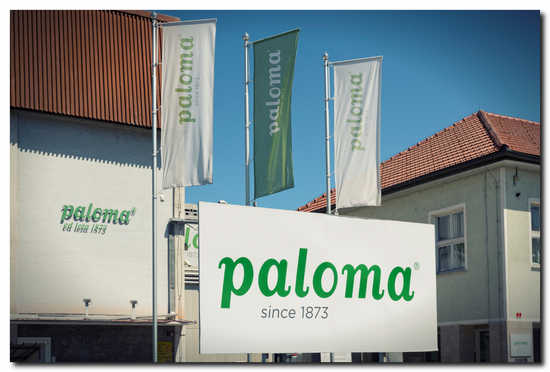
As part of a comprehensive service package, Toscotec will supply onsite erection, supervision, commissioning and start-up, as well as training programs to the mill’s personnel.
Following a capital increase by the private-owned investment fund Eco Investment in 2016, and the integration into the Slovak Hygienic Paper Group (SHP) group, the Slovenian tissue supplier Paloma aims to become the leading manufacturer of hygienic paper products in the Adriatic region and beyond.
Richard Zigmund, CEO of SHP Group, says: “When we decided to invest in new capacity at Paloma’s production base, we started looking for a machinery supplier who could manage and successfully complete complex turnkey projects. Toscotec proved to have the right credentials to support our strategic program and supply the state-of-the-art technology we need to set Paloma’s manufacturing at full capacity.”+
“This new project strengthens Toscotec’s position as the leading turnkey supplier in tissue” says Alessandro Mennucci, CEO of Toscotec, “we look forward to working with Paloma, who has a longstanding tradition in the production of hygienic paper products and has built a strong team of highly specialized professionals. Based on their investment targets, we developed a fully customized design aimed at improving the mill’s energy efficiency and manufacturing processes, in step with this capacity increase.”
About Paloma d.d.
Founded in 1873, Paloma is a public limited company with a long-lasting tradition in the manufacture and marketing of hygienic paper products in Europe. The company’s annual production capacity is 72,000 tonnes of tissue and it currently employs 675 people. Paloma is predominantly export-oriented and it currently holds the position of market leader in South-East Europe.
For further information, please contact:
Marco Dalle Piagge, Sales Director, Tissue division, This email address is being protected from spambots. You need JavaScript enabled to view it.
Matteo Giorgio Marrano, Area Sales Manager, Tissue division, This email address is being protected from spambots. You need JavaScript enabled to view it.

